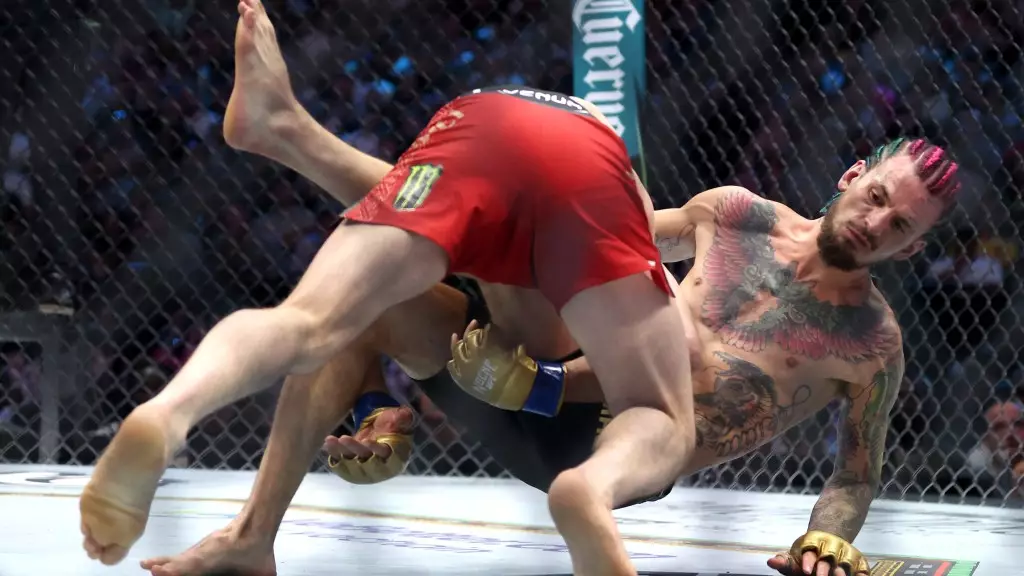In a current environment where mixed martial arts (MMA), especially the UFC, is gaining more traction and mainstream appeal, the bantamweight division offers a layered array of narratives. Aljamain Sterling, a figure heavily entrenched in the bantamweight rankings, recently cast doubt on the validity of a rematch for the championship belt between Merab Dvalishvili and Sean O’Malley. Dvalishvili successfully defended his title against Umar Nurmagomedov in their recent bout at UFC 311, leaving fans speculating about the next plausible challenger for the title.
Merab Dvalishvili’s triumph over Nurmagomedov showcased his wrestling prowess and relentless pacing. His previous decisive victory over O’Malley, which had resulted in a unanimous decision, seemed to indicate that he had already figured out O’Malley’s game plan. Sterling acknowledges that while O’Malley provides captivating entertainment, especially regarding income potential, the narrative of an O’Malley rematch is fraught with complications. The UFC brass, led by Dana White, may view O’Malley as the next title challenger, but Sterling’s insights bring to light fundamental issues of fight meritocracy versus marketability.
One of the core arguments made by Sterling revolves around O’Malley’s activity, or lack thereof, within the octagon. O’Malley’s long absences in competition—factors that Sterling meticulously outlines—raise questions about his readiness and ability to adapt to Dvalishvili’s fighting style. The reality is that in a sport where timing and rhythm are crucial, prolonged inactivity can severely undermine a fighter’s competitive edge. Sterling’s assertion that O’Malley has taken significant time off after his bouts signals an inherent risk for a fighter who aspires to reclaim championship glory without sufficient active experience.
Furthermore, the psychological aspect of fight rematches should not be overlooked. The mental barriers following a significant loss often reshape an athlete’s mindset and can dictate their performance in subsequent engagements. From Sterling’s perspective, while O’Malley may possess the charisma and fanbase that could market a rematch effectively, he would primarily enter the octagon reliant on the hope of luck rather than a calculated strategy to counter Dvalishvili’s formidable style. In essence, the promotional allure could divert attention from the fundamental aspects of fight preparation and strategy.
For now, the dialogue around the future of the bantamweight division continues to be shaped by not only technical skills but also by promotional enticements and fighter narratives. While there are compelling arguments for O’Malley’s role as a contender, the efficacy of a rematch rests upon several undecided factors, particularly when assessed through the lens of recent performances and fighter activity. As fans and analysts alike anticipate developments, it becomes increasingly essential to scrutinize which match-ups contribute genuinely to the competitive landscape of the bantamweight division rather than merely serving commercial interests.

